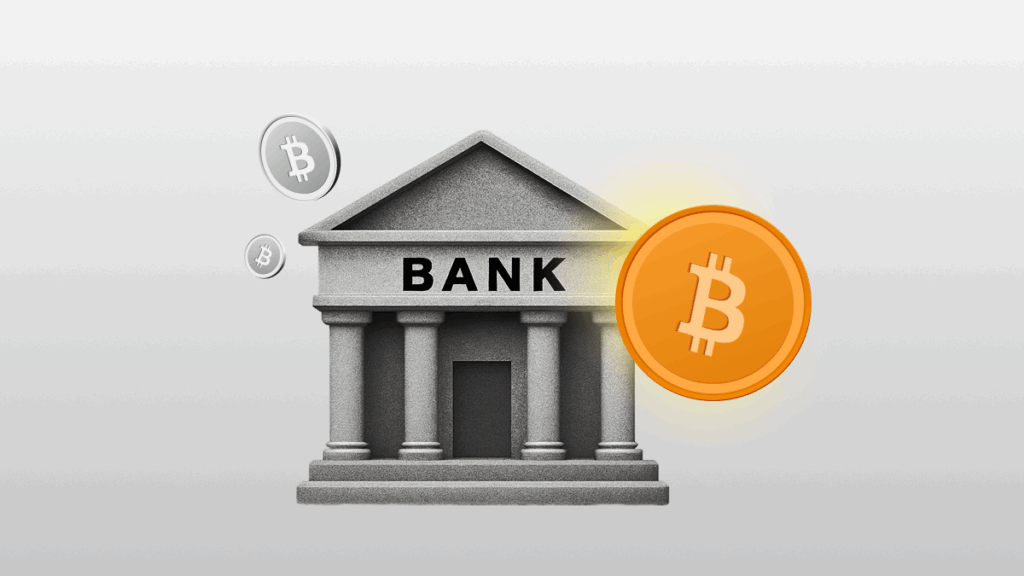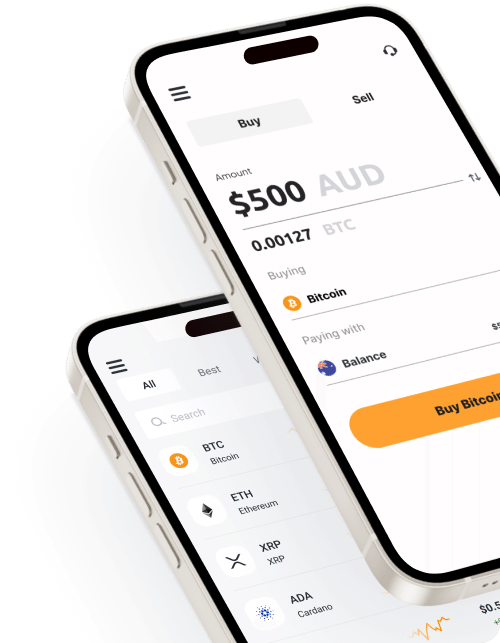
What makes a bank crypto-friendly?
When investing in Bitcoin or crypto in Australia, it helps to choose a bank that allows smooth transactions to exchanges, as well as generous deposit limits. These core features make a bank crypto-friendly.
Tips on finding a crypto-friendly bank
- Types of payment methods available. Bank transfer, PayID, credit card, and PayPal are some of the most commonly available options.
- Look up a bank’s policies or T&Cs around crypto-related transactions. For example, Commonwealth Bank’s website states that they do “decline and hold certain payments” to crypto exchanges, citing concerns over potential scams.
- Don’t hesitate to switch banks or use a fintech service that’s friendly to crypto.
Banks that are crypto-friendly
That said, we’ve rounded up a list of Australian banks that are crypto-friendly. Keep in mind that the following information is for personal/everyday bank accounts.
| Bank | Crypto-friendly? | Crypto deposit limits |
| ANZ | 🟩 | ANZ: Regular ANZ accounts do not have an explicit crypto deposit limit. See general deposit limits. ANZ Plus: $10,000 per month, but customers will first have to disable the “Crypto Protect” feature. Want to know how to buy Bitcoin with ANZ? Click here. |
| NAB | 🟩 | $40,000 per day. Click here to find out how to buy Bitcoin with NAB. |
| Up Bank | 🟩 | No crypto explicit limit. Pay Anyone feature: $30,000 daily |
| St. George Bank | 🟩 | No crypto limit specified. Personal fund transfers to crypto exchanges have been reported by customers to be smooth. Find out how to buy Bitcoin with St. George Bank here. |
| Great Southern Bank | 🟩 | No crypto limit specified. PayID and Osko: $5,000 per day. Pay Anyone feature: $30,000 per day. A customer reported a positive experience with Great Southern Bank. Another claimed that GSB blocked a few of their transfers last year but they were quickly solved with a quick phone call. |
| Revolut | 🟩 | No crypto limit specified on its Australian entity’s official site, but Revolut lets users buy, sell, exchange, and receive crypto. |
Banks that are less crypto-friendly
On the other hand, here’s a list of Australian banks that are less-than-friendly – or not at all – when it comes to crypto-related transactions.
| Bank | Crypto-friendly? | Crypto deposit limits |
| Commonwealth Bank | 🟨 | $10,000 crypto limit per month. This means that if, for example, you make a transaction of $10,500 to a crypto exchange, the amount will be declined in full. Payments to crypto exchanges, regardless of the amount, will be held for up to 24 hours. Customers also can’t use a Commonwealth Bank credit card to buy crypto. Find out how to buy Bitcoin with Commonwealth Bank here. |
| Macquarie Bank | 🟥 | Does not support new crypto deposits, but customers can still receive payments from crypto exchanges. |
| Westpac | 🟨 | No crypto limit specified. General transfers above $5,000 to $10,000 might trigger a review from the bank. Find out how to buy Bitcoin with Westpac here. |
| Bank of Queensland | 🟨 | Limited to $5,000 per month. |
| ING | 🟨 | $5,000 per day. Customers can change this limit to a maximum of $20,000 per day. Some reports suggest a behavioural $1,000 deposit limit for crypto transfers, notwithstanding their T&Cs. Reports from customers in the past year or so claimed ING did not allow deposits into major crypto exchanges. However, this has not been corroborated by the bank. |
| Bankwest | 🟨 | No crypto limit specified. $10,000 monthly limit. Bankwest credit cards cannot be used to buy crypto. Transfers to crypto exchanges will be held for up to 24 hours. |
What if I want to transfer a large amount of funds to crypto from my bank in Australia?
Given that many banks have restrictions in place, it is best to speak to your bank’s relationship manager beforehand before transferring funds to crypto exchanges.
Rules around this topic are ever-changing. Thus, it is helpful to try and keep up with the conversation on Aussie Bitcoiner forums such as Reddit. Side note: if you have any queries or feedback for our site, we have our own subreddit too (you’re welcome).
Other commonly asked questions
What is the best payment method for transfers to crypto exchanges in Australia?
PayID is often the best option. It is simple and fast, and works on weekends and public holidays. Unlike credit cards or ATMs, PayID also doesn’t come with extra transaction fees.
With Australian crypto exchanges, PayID requires a dedicated email (which you can copy and paste from your crypto exchange’s account). This makes PayID less exposed to errors.
Why do some banks have a ‘hold’ period for crypto transfers?
A hold period for transfers is not unique to crypto. Banks do this as a common compliance measure to check for fraudulent or suspicious transactions. The hold period is typically 24 hours.
Why did so many banks “debank” crypto? What is debanking?
Debanking is when a traditional financial institution, like a bank, shuts down a customer’s account. This could be due to many reasons that often go unexplained. Crypto businesses around the world have experienced being debanked.
The future of crypto banking in Australia
With cryptocurrency slowly entering mainstream finance, it is likely that more banks in Australia will shift their stance on crypto and be more accepting of crypto-related banking services. With the US recently signing two crypto-friendly bills into law, crypto advocates are hopeful that Australia will follow the US’ footsteps. Onwards and upwards!



